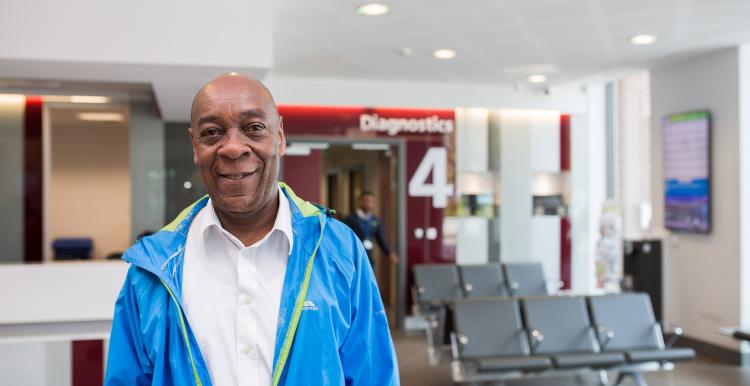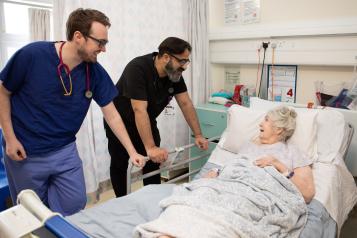Plan reveals local health and care priorities for next five years

“As demand for services across BaNES, Swindon and Wiltshire has grown, we need to find new ways of working so we can better meet the needs of local people while still balancing our budget.
Helping people in Bath and North East Somerset, Swindon and Wiltshire to stay healthy and independent in old age will be a top priority for local health and care leaders over the next five years, along with offering more help for people with learning disabilities and improving access to mental health services.
Local priorities
A list of priorities has been published today by health and care leaders as part of a plan detailing how they will spend money and organise services across the region between now and 2024.
The priorities have been drawn up by local NHS clinical commissioning groups, local authorities, hospitals, other care providers and voluntary organisations and include feedback collected from an extensive public engagement exercise carried out last summer.
The priorities set out to:
- Help people to age well, stay well at home and improve how community services can help
- Help to improve the quality of life for people with learning disabilities and autism and their families by improving access to services
- Help to deliver the best mental health support for local people, regardless of personal circumstances, age or individual need
The document also sets out plans for helping people to improve their own health, helping GP surgeries to work more closely together and reducing variation in care and services offered by the area’s three hospitals.
Tracey Cox, Senior Responsible Officer of Bath and North East Somerset, Swindon and Wiltshire Sustainability and Transformation Partnership said:
“As demand for services across BaNES, Swindon and Wiltshire has grown, we need to find new ways of working so we can better meet the needs of local people while still balancing our budget.
“Our plan for the next five years sets out how we are going to do this and how we are going to empower people to live their best lives while also helping people with learning disabilities and autism and improving access to mental health services.
“The plan has drawn on a great deal of input from local people and I’d like to thank them for taking the time to feed in their own priorities for health and care.”
Dr Robin Fackrell, Associate Medical Director for Ageing Well & Frailty for the BSW STP said:
“By 2024 our population aged over 75 will have grown by 40 per cent.
“Given that older people are more likely to experience a range of complex conditions affecting their health and wellbeing, this will put a lot of pressure on our health and care system unless we do more to help people live well into old age.
“Our focus will be on helping individuals to stay well at home, improving the responsiveness of community services and encouraging the community to draw on its strengths and resources to help older frail people to keep well, stay out of hospital and remain active members of society.”
Lucy Baker Director of Service Delivery at BSW CCGs said:
“All too often we are supporting people with learning disabilities and autism in a crisis when their needs could have been met earlier. This can result in hospital stays and residential placements some distance from family and friends. We want this to change.
“We want to improve the quality of life for individuals with learning disabilities and their families and carers by reducing preventable crises and improving access to health and care as a priority. This will involve professionals and volunteers across health, social care and education working even more closely together to improve learning difficulty services and outcomes and help people to live their best lives.”
The draft five year plan is available on the BSW Sustainability and Transformation Partnership website here
In March and April 2019 we spoke to people across Bath and North East Somerset, Swindon and Wiltshire (BSW) to find out what changes they would like to see to local NHS services with additional funding from the government.
The findings from this were then put into a report which was used to help shape this five year plan.


